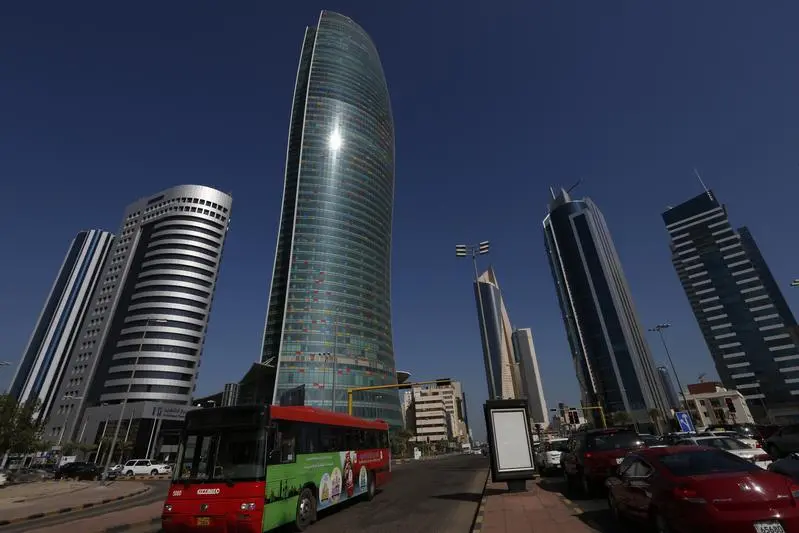PHOTO
The government of Kuwait is continuing its drive to encourage private sector investments, having recently announced plans to invite proposals on several large-scale, public-private partnership (PPP) projects.
Utilities and education to benefit
Speaking at a conference in late November, Mutlaq Al Sanei, general manager of the Kuwait Authority for Partnership Projects (KAPP), said the authority will invite advisory proposals for the third phase of the Az Zour North independent water and power project (IWPP) during the first half of next year.
As the state’s fourth IWPP project, phase three of Az Zour North is expected to have 1.8 GW of power generation capacity and a water desalination capacity of 75m imperial gallons per day (MIGD).
The conference also saw KAPP announce plans to issue a request for proposals for the Al Khiran IWPP before the end of the year. The facility is slated to have 1.5 GW of generation capacity and 125 MIGD of desalination capacity.
In October the state invited two bidders to talks for the second phase of the Az Zour North project. Part two of the five-phase project will see private sector involvement on a build-finance-operate-transfer basis. Like the first phase, the second will run on natural gas and, with a planned budget of KD820m ($2.7bn), will add 1.8 GW of generation capacity and 102 MIGD of desalination capacity.
While many of Kuwait’s headline PPP projects are utilities related, a major collaboration in the education sector is also moving ahead.
The Kuwait Schools Development Programme took a step forward last month, when it was reported that the project had moved into the financial evaluation phase.
Collaborating with the Ministry of Education (MoE), KAPP is pursuing the development of nine schools across Kuwait. The project is to be built, financed and maintained by private investors, while the MoE will recruit staff. If completed as planned, the PPP will be the first of its kind in the Middle East.
Progress picking up
The promulgation of the new PPP Law No. 116 of 2014 and its executive regulations strengthened the PPP programme’s institutional framework and offered new benefits to projects, including tax and fee exemptions. It also established the KAPP – previously known as the Partnerships Technical Bureau – as the main body responsible for implementing the state’s PPP programme launched in 2008.
However, progress since the reforms has been slow, and the country’s first PPP project – the initial phase of Az Zour North IWPP, awarded in 2013 – is the only one to have been implemented to date.
The plant is 40% owned by a private consortium composed of French utilities multinational Engie, Japanese trading company Sumitomo Corporation, and Kuwait’s Abdulla Al Hamad Al Sagar & Brothers. The government owns the remaining 60%.
Private sector participation set to rise
Successfully launching new PPPs will be a top priority for the government moving into 2017, as it seeks to maintain momentum on its infrastructure agenda despite a mid-2014 decline in global oil prices, which led to a record deficit of KD8.7bn ($28.5bn) projected for FY 2016/17.
According to Al Sanei, the PPP model offers mutual benefits and should see private investors help offset the costs of mega-projects. This in turn should help Kuwait balance its books, and generate new investment opportunities for private developers and contractors.
In a November report published by the National Bank of Kuwait, the state’s projects market was maintaining healthy momentum during the third quarter, when KD1bn ($3.3bn) worth of contracts were awarded – a 14.8% quarter-on-quarter increase.
This brought the total value of contracts awarded in the first nine months of 2016 to KD3.6bn ($11.8bn), of which KD1.5bn ($4.9bn) were for oil and gas projects.
MEED forecasts an additional KD2.3bn ($7.5bn) in contracts will be awarded by the end of the year, while the total value of awarded projects is set to rise to KD11.5bn ($37.7bn) in 2017, surpassing last year’s record of KD10bn ($32.8bn).
Strong government commitments to both project delivery and PPP implementation are expected to compensate for lower oil receipts and a subdued foreign direct investment environment, and media reports suggest the private sector could benefit from at least eight PPP projects in the country in the years ahead.
© Oxford Business Group 2017





















